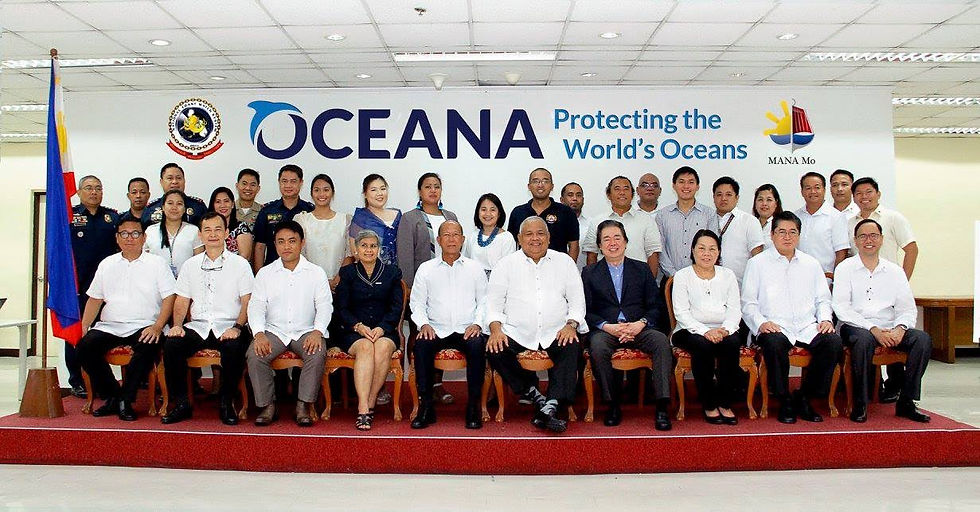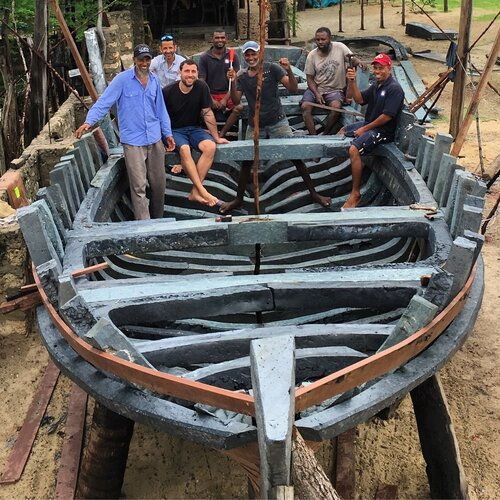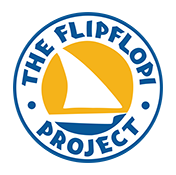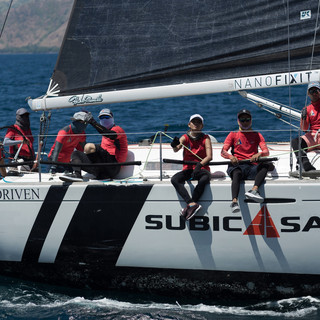How do we encourage someone to protect our ocean?
- The Lighthouse Legacy Foundation

- Aug 21, 2021
- 4 min read
Updated: Sep 10, 2021
“The cure for anything is saltwater: sweat, tears or the sea.” - anonymous
Human beings are naturally drawn to water. Considering that water makes up 60% of the human body, it's no surprise that we are so connected to this ever-changing element. Our body as a whole has almost the same density as water, which enables us to float... yes our body can float naturally!
Despite that some people are afraid of the ocean because they do not know how to swim, our brains are hardwired to react positively to water and that being near it can calm and connect us, increase innovation and insight, and even heal what's broken.
It is with this inherited bond with the ocean, that two organizations from different sides of the globe are trying to encourage people to fall in-love with the ocean through sailing with the hope of saving our seas and all of us who depend on it. The major challenge in conservation is influencing people's behavior -- changing our mindset on how we deal with trash.
Subic Bay, Philippines

The Subic Sailing Club, a group of entrepreneurs, expatriates, and sports enthusiasts who all share the same passion and love for sailing, was part of the working committee that launched the nationwide campaign called the Maritime Archipelagic Nation Awareness Month or MANA Mo headed by the National Coast Watch Council last September 2017.
The MANA Mo, under the presidential proclamation No. 316, was intended to raise national consciousness on the country's marine wealth and endowments and its potentials among Filipinos. The theme of MANA Mo this year is “Our Seas, Our Livelihood, Our Heritage: Connecting Lives and Nations.”

We are a maritime people. We are more water than land. It is in our DNA that we are seafaring people" - Art Valdez, Team Leader of the Balangay Expedition
All throughout history, Subic Bay has been a ship’s refuge that was most coveted by foreign powers like Spain, Great Britain, the United States, and Japan. From fishermen’s dinghies to Spanish galleons, from steamships to the most sophisticated warships, to the modern cruise ships and racing yachts, Subic Bay has provided them all a safe haven with its naturally deep harbor and protected coves.
Subic Bay, steeped as it is in the tradition of naval commerce, having played an important role in the maritime history of the Philippines, couldn’t be any more appropriate as the starting point for injecting awareness of the country’s maritime heritage, and the natural prowess of Filipinos as sailors and seafarers.
However, when it comes to keeping our oceans trash-free, the Subic Sailing Club also plays a major role in the local International Coastal Cleanup (ICC) Campaign which is held every 3rd Saturday of September.
The ICC provides the trash data collection and serves as a guide for governments, manufacturing industries, businesses and individuals in making smart solutions to the marine debris problem -- because we can’t manage, what we can’t measure.
Lamu Island, Kenya
In a small town in Lamu Island, along the coast of Kenya, a #plasticrevolution has begun. A movement for change with a mission to end single-use plastic and lead a plastic-reuse revolution through education, sailing expeditions, positive storytelling and campaigns.
This is the Flipflopi Project, founded by Ben Morison in 2015, all came about when he was struck by the amounts of plastic especially flipflops (slippers) littering the beautiful beaches that he so deeply loved. And the rest was history!

His search for alternative uses of plastic led him to the idea of building a boat made out of the plastic waste collected along the shores.
But this is just not just any ordinary boat but a centuries old traditional craft called "dhow"which is an integral part of the Swahili culture in this coastal region. Ali Skanda, a local renowned sailing dhow builder, partnered with Ben in combining traditional boat building whilst also pioneering new techniques in crafting the various components to build this watercraft.
In 2017, they were able to build the world's very first recycled plastic dhow made out of recycled plastic waste including 30,000 multicoloured flip flops. And in 2019, they have completed their first ground breaking expedition, sailing the Flipflopi over 500km from Labu, Kenya to Zanzibar, Tanzania, stopping at 12 communities along the way. They will continue sailing, with the hope that people around the world are inspired to fight the growing tide of plastic pollution. [read their full story here].

Water connects us all
We truly hope that sailing will rekindle our maritime consciousness and ignite our seafaring spirit. Wherever you are in this planet, the ocean connects us all. The ocean belongs to all of us, collectively. We all put in and we all take out. So, we have to act collectively. Because a healthy ocean is a healthy planet.
See what kind of trash leaks in our oceans? Click on the reports below to know more.
Do you want join us in our campaign? Contact us!
Do you want to learn how to sail?
If you want to learn how to sail and fall in love with the ocean, visit Subic Sailing Club. Special thanks to all the members of the Subic Sailing Club for their unbridled passion and commitment have kept the sport alive and exciting in the country.







































































Comments